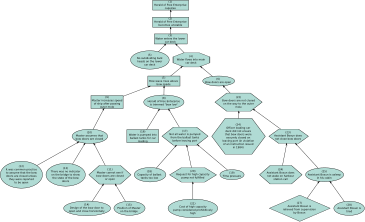This article needs additional citations for verification. (February 2020) |

A proximate cause is an event which is closest to, or immediately responsible for causing, some observed result. This exists in contrast to a higher-level ultimate cause (or distal cause) which is usually thought of as the "real" reason something occurred.
The concept is used in many fields of research and analysis, including data science and ethology.
- Example: Why did the ship sink?
- Proximate cause: Because it was holed beneath the waterline, water entered the hull and the ship became denser than the water which supported it, so it could not stay afloat.
- Ultimate cause: Because the ship hit a rock which tore open the hole in the ship's hull.
In most situations, an ultimate cause may itself be a proximate cause in comparison to a further ultimate cause. Hence we can continue the above example as follows:
- Example: Why did the ship hit the rock?
- Proximate cause: Because the ship failed to change course to avoid it.
- Ultimate cause: Because the ship was under autopilot and the autopilot's data was inaccurate.
- (even stronger): Because the shipwrights made mistakes in the ship's construction.
- (stronger yet): Because the scheduling of labor at the shipyard allows for very little rest.
- (in absurdum): Because the shipyard's owners have very small profit margins in an ever-shrinking market.
© MMXXIII Rich X Search. We shall prevail. All rights reserved. Rich X Search
